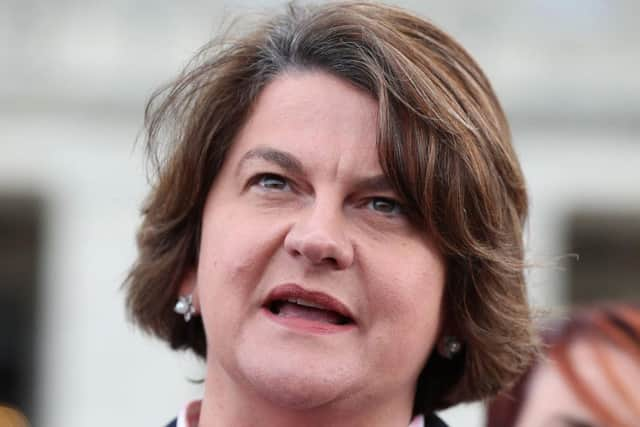High Court challenge over refusal to investigate EU referendum spending by DUP
and live on Freeview channel 276
The Good Law Project (GLP) argues the commission should have taken action over allegations the DUP breached electoral law in relation to its campaign expenses in the run-up to the UK’s historic vote to leave the EU in June 2016.
A hearing is due to take place in London on Thursday before Mr Justice Stuart-Smith to determine whether the case will go to a full judicial review.
Advertisement
Hide AdAdvertisement
Hide AdIn court documents, the legal campaign group said the public interest is “overwhelmingly in favour” of the commission taking action.


Gavin Millar QC, representing GLP, said: “The spending in question was very large and the vote which it helped to procure continues to exert huge influence over all aspects of political life.
“There is a strong public interest in ensuring that the records of campaign spending in relation to it are accurate.
“There is also a strong public interest in ensuring the identity of those spending very substantial sums in the referendum is transparent.”
Advertisement
Hide AdAdvertisement
Hide AdGLP claims there were “apparent contraventions of electoral law” as the pro-Brexit DUP appeared to have accepted “substantial donations” from an association called the Constitutional Research Council (CRC).
The group also says that expenses declared by the DUP, including £282,000 on advertising in the Metro newspaper, appear in fact to have been incurred by the CRC.
GLP is seeking an order quashing the commission’s decision not to take further action and requiring it to reconsider whether to open an investigation into, or bring a prosecution against, the DUP or CRC.
The group previously brought a judicial review against the commission, arguing it failed in its duty to regulate the referendum process.
Advertisement
Hide AdAdvertisement
Hide AdTwo judges ruled in September last year that the commission had “misinterpreted” the definition of referendum expenses in relation to the Vote Leave campaign.
The commission has launched a challenge against the ruling at the Court of Appeal.